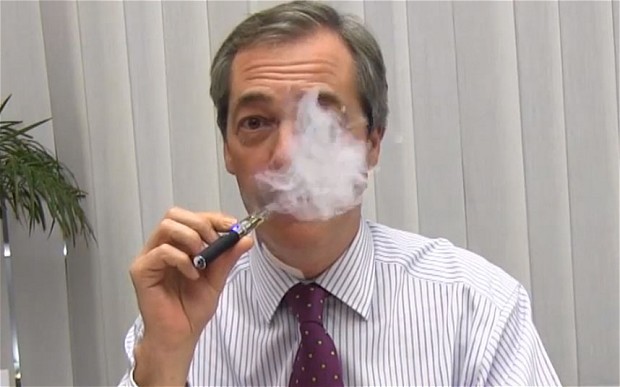
The world of e-cigarettes is something of a legal minefield. Anti-smoking legislators who don’t see the huge potential for benefits in the new technology are continually planting bills, which could explode into effect at any moment in places such as New York, but some of the bombs have already gone off. Although some legislators support complete bans, the majority of the laws which have been passed prevent them from being sold to minors. However, some states or counties have gone a step further, essentially extending their smoking bans to cover electronic cigarettes too.
The politicians and advisors who spearhead these decisions and push the legislation through are condemning many vapers to standing outside with smokers, removing one of the major benefits of the technology with no evidence to support their choice. It’s time to name and shame the guilty.
6: Contra Costa County Board of Supervisors, California
The Board of Supervisors in Contra Costa County unanimously approved legislation banning the use of e-cigarettes in no smoking areas in March 2013. The board is composed of John M. Gioia, Candace Andersen, Mary N. Piepho, Karen Mitchoff and Federal D. Glover, and made their decision based on concerns from the FDA, worries about effects on bystanders and the idea that e-cigarettes will make smoking a social norm again. Despite the fact that the FDA results were hugely overplayed, e-cigs don’t harm bystanders and vaping is not smoking, the decision gained complete support from the board, with Glover commenting, “There is a perception that if we don’t do anything about this, it’s okay to smoke.”
5: Barbara Ferrer, Boston Public Health Commission, Massachusetts
The decision to ban the use of electronic cigarettes in no smoking areas in Boston was to close what they referred to as a “loophole” in “unregulated products.” The executive director, Barbara Ferrer, commented, “The steps the board has taken today will help reduce young people’s exposure to tobacco and unregulated nicotine products and eliminate exposure to e-cigarette vapors containing nicotine and other known toxins in the workplace.” All consumer products have regulation, and the all reputable e-cigs such as White Cloud Cigarettes bear CE and RoHS compliant marks which establish their construction quality. In other words, the bill is a needless infringement on the freedom of vapers.
4: Scott Neal, Tobacco Prevention Program Manager, Washington
The use of e-cigarettes in non-smoking areas has also been banned across Seattle and King County, thanks to a campaign spearheaded by Scott Neal. He commented, “By returning smoking to the public eye, public e-cigarette use threatens to undermine the social norming impact.” The legislation also made sale to minors and discounts or giveaways of e-cigarettes illegal in the state. The reasons given were related to the (misleading) FDA test, as well as companies claiming that e-cigarettes are a safe and effective way to quit tobacco. Despite the fact that they are extremely safe in comparison to tobacco, and that companies don’t claim they can be used for smoking cessation, the bill still passed.
3: Governor Gary Herbert, Utah
In March 2012, the final approval from the senate and Gov. Herbert was given for a ban on the use of e-cigarettes indoors. The decision of the senate (which voted 24-3 for the bill) and the Governor banned the use of e-cigs in no smoking areas, except for a five-year exemption period for businesses which make over 75 percent of their income from e-cigs. Despite the temporary allowances, this still represents a state-wide ban on the use of a product with huge potential benefits.
2. Senator Ellen Corbett, California
Elected Senate Majority Leader in 2010, Corbett is the author of SB 648, a bill designed to regulate electronic cigarettes as a tobacco products in the state of California. If passed through the state Assembly, the bill would ban all e-cigarette use wherever smoking is prohibited on the basis that they pose a threat to public health. Technically speaking, e-cigs containing nicotine do fall under the FDA's intended use criteria for tobacco products. However, Corbett irrationally argues against their safety, citing lack of evidence. Plenty of studies have found electronic cigarettes to be far safer to the user and pose little to no risk to the general public.
1: Former Governor Jon Corzine, New Jersey
In 2010, New Jersey banned the sale of electronic cigarettes to minors and amended the Smokefree Air Act of 2006 to include the use of e-cigs indoors. This decision could be traced back to the bill’s sponsors, such as Connie Wagner and Nancy F. Munoz, but realistically the Governor (then Jon Corvine) has the power to veto the bill, and is therefore responsible for it passing. However, the senate passed it 38-0, so perhaps the overwhelming support would have meant it would have just been delaying the inevitable. Why the entire senate thought that e-cigarettes aren’t a hugely valuable harm reduction resource and not harmful to bystanders is utterly beyond the grasp of reason and logic.
See Also: Best vaporizer pen brands for U.S. vapers

